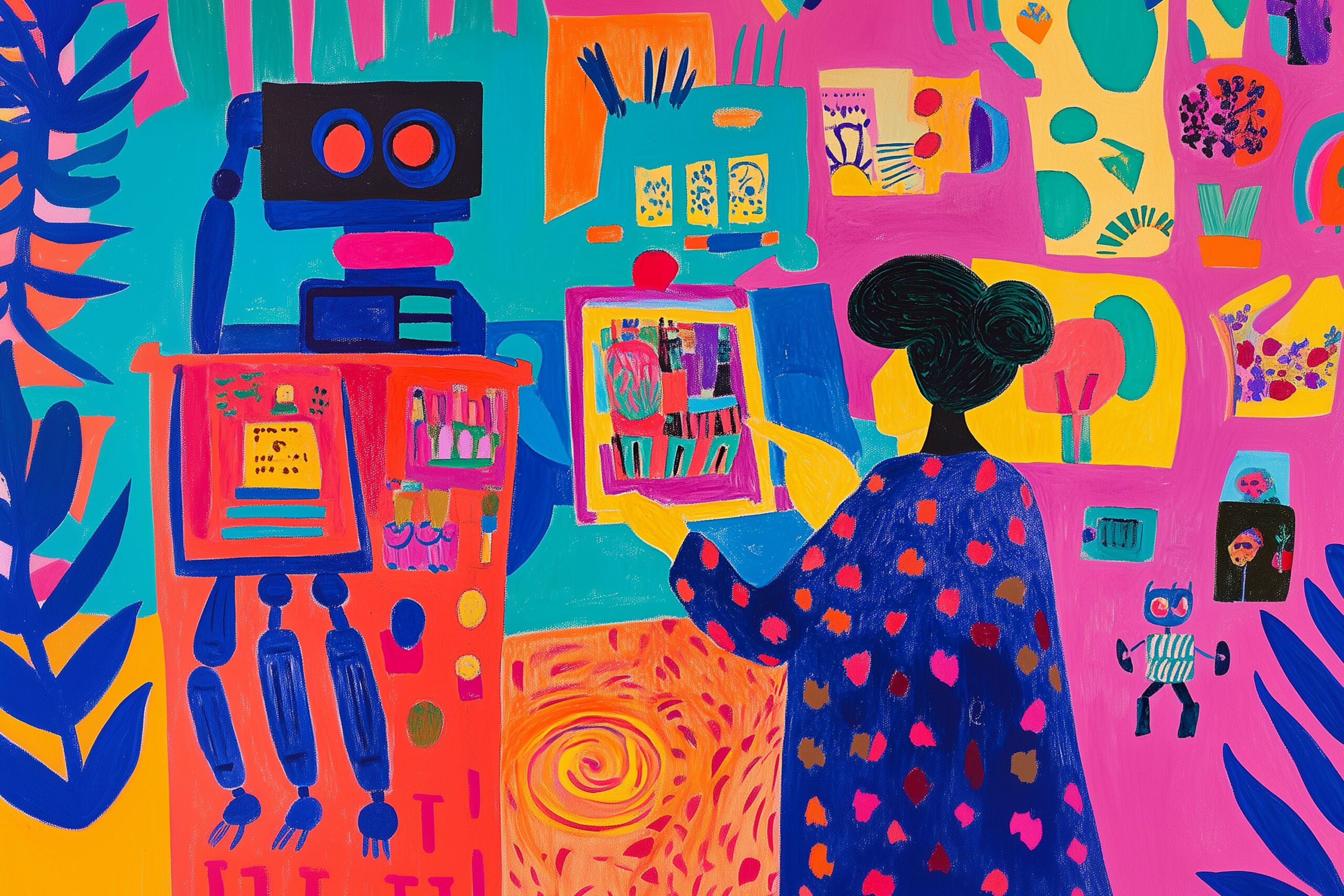Get the newest insights
Let us know your interests and get the most relevant reports, articles and events delivered straight to your inbox!
Sign up here
AI is rapidly reshaping workplaces by handling routine tasks, which allows us to focus more on creativity and strategy. Organisations must remain flexible and open to invest in this change, as the choices we make today will define our future success.

The International Labour Organisation estimates that 80% of all US workers could have at least 10% of their tasks automated by AI today.
AI has the power to enhance human capabilities at work, paving the way for new job roles that involve working alongside these advanced technologies.
It’s crucial for organisations to focus on developing their workforce by offering training programmes that cover both technical and non-technical skills.
Let’s have a look at the crystal ball. What does the future of work hold? And how does AI influence our workplace?
Unfortunately, predicting the future of work is not easy for several reasons. Historical forecasts often miss the mark as they fail to account for the complex dynamics of human behaviour and decision-making. For example, economist John Maynard Keynes predicted a 15-hour work week by this century, a vision yet to be realised. Additionally, the models we use to analyse current workplace trends tend to concentrate on what is immediately visible, overlooking many possibilities and hidden opportunities. Then there’s the significant impact of AI to consider, with reports suggesting that AI could automate up to 25% of current jobs.
Curious to know more about implementing Gen AI in your organisation? Read more about the three roles CEOs need to play in order to drive Gen AI success.
On a positive note, while discussions about AI may feel overwhelming, the future of work ultimately depends on our decisions and our willingness to embrace change. This insight is one of the key takeaways from a recently published article by Deloitte’s Center for the Edge. You can dive into the full article or check out the highlights here.
AI is a technological marvel designed to enhance our human capabilities, not to replace them. It is already handling certain routine tasks, freeing us up to focus on more complex and creative aspects of our work. Studies suggest that this shift could allow up to 80% of US workers to experience some level of automation in their roles.
We are witnessing diverse forms of augmentation in the workplace. Think of AI as a personal coach, identifying your strengths and areas for improvement. Alternatively, consider an AI that acts as a collaborative decision-maker, providing valuable insights, outlining available options, and helping you assess them objectively.
As we integrate AI and other emerging technologies into the workplace, we must acknowledge the emergence of new tasks and skill sets. This evolution also allows for more roles to be performed entirely remotely.
The shift to digital work liberates employees from the necessity of being in the same physical location as their tools or colleagues. Initially, remote collaboration was believed to hinder creativity compared to in-person interactions. However, advancements in remote work technology and practices have demonstrated that remote collaboration can actually yield superior results, as shown by recent experiences in remote work innovation.
Making thoughtful decisions and investing in human skills are essential for effectively harnessing AI and emerging technologies.
Consider the following questions:
Let us know your interests and get the most relevant reports, articles and events delivered straight to your inbox!
Sign up here